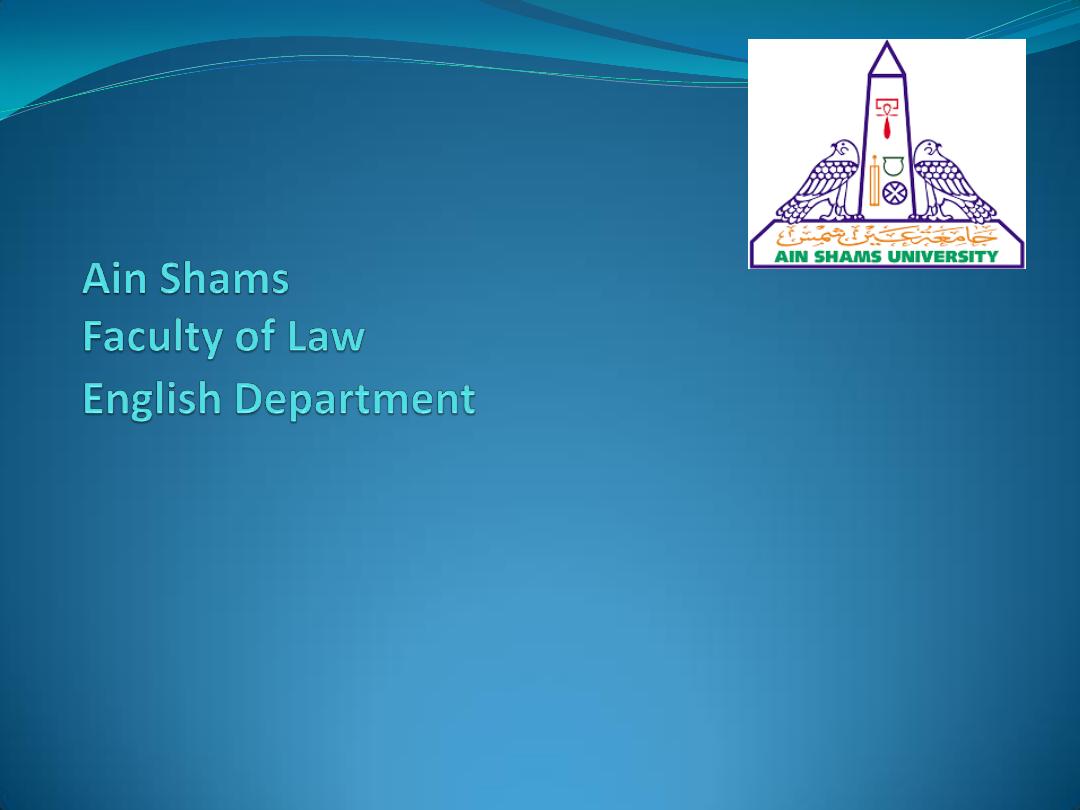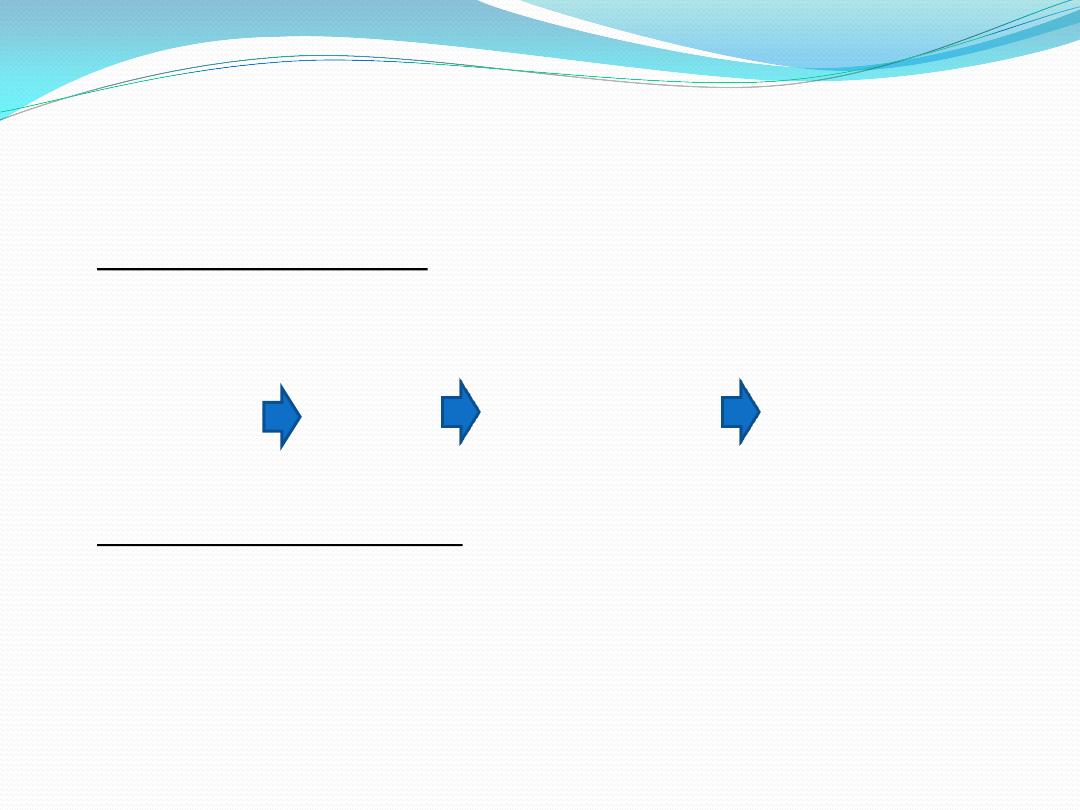
Dr Fatma Galal
Teacher at civil law department
Dr.fatmagalal.law@gmail.com

1- Be on time

2- Keep mobile silent

3- No side talking

Revision

Part 1: the law.
Chapter 1
:
Definition and characteristics of law:
law is a body of
general and abstract
rules which regulates
the
social
conduct of people and enforced by a
sanction
.
-
chapter 2
:Difference between
law
,
religion
and
morality.
-
chapter 3:
We classified law into public and private
laws…then studied branches of each of them.

Chapter 4: the sources of law
Sources of law are either formal or informal
Formal sources:
are those defined by law as a
source of the legal rule used in ruling disputes.
In Egyptian civil law: they are ordered as follows:
legislation custom Islamic law natural law .
Informal sources:
are those used to interpret rules
coming from any of the formal sources. They are
previous courts judgments and scientific opinions.

We have finished legislation now will study custom as
the second formal source of law

Section two: custom
1- Definition:
it is an old and
long
gradually observed
course of conduct coming by the needs of the people.
It is obeyed by individuals and believed to be obligatory
and any deviation from it felt to be abnormal.
2- Advantages:
better adapted to the national feeling
than legislation so it is the declaration of the will of society.
3- Disadvantages:
it may be unclear and not easily
accessible, and it may not change quickly with the quick
changes of the society.

Requisites of a valid custom:
1- it must be general :
Observed by
all individuals
in a certain place state,
town).
Professional Custom:
concerns only a group of persons
( merchants). Also general : followed by all those
practicing same profession.
2- custom must be considered as binding:
If people feel it is free to depart from it whenever they
like, it is not a source of law.

3- it must be ancient:
Followed for , so that no living person can remember
when did it begin.
4- conformity with legislation: not contrary to
imperative rules of legislation because the leg is
higher.

Section 3: principle of Islamic
shariaa
Christian faith
did not put legal rules (dealing with
social relations such as contract, ownership…but only
spiritual principles.
Whatever the roman catholic church established the
canon which is the source of family law in many
countries.
While Islamic religion
regulated religious duties
such as fasting and social relations such as contracts.
In Egypt: third source of law but basic source of
legislation itself

Section 4: principles of natural law
They are the ideal rules which justice, good conscience
require in a certain case.
If the judge did not find a rule in the previous sources
of law, he must give a judgment by using principle of
natural law.

Secondly: informal sources of
law

1- former court decisions (judicial
precedents):
The function of judge is to
apply law in court decisions
not to make law.
Decision has binding force only in the case which it
was issued in, but has no binding effect in any other
case.
Though not binding, they are respected
by courts, and
invoked by parties to support their claims.
In England and USA precedents are binding, judge
must follow principles stated in former judments.

2- scientific opinion:
Jurists and particularly professors of law interpret law.
Their interpretation is not binding but usually
respected (considered) by courts.

Chapter 5: Application of law
Section 1
imperative and facultative rules

Chapter 5: The application of law.
1 -
imperative and facultative rules.
( Applying law according to the mandatory of
complementary nature of law).
2 - temporal application of law.
( the period of Applying certain law).
3 - territorial application of law.
( the place of applying certain law )

A- imperative or mandatory rules
They are rules related to the
general interest of the
society
, and called rules of public policy or public
order.
They
can not be violated
by the contrary private
agreements, so courts will apply them despite any
contrary will of the interested persons.

B- facultative and complementary rules
They are rules for the
private interest of the
individuals.
They
could be violated
by contrary agreement of
individuals , so courts will not apply those rules unless
there is no contrary agreement.

thus, rules of
criminal rules are imperative
, if A killed
B he will be punished even if A agreed with B’s family
not to apply the punishment stated by law because this
agreement will be void.
The greater part of the
private law is facultative
Ex: civil law stated that delivery should be in the same
place and time of the contract. but parties can agree on
something else and the judge will apply their
agreement.
Note:
some private law rules are imperative
: ex: civil
law stated that the rate of interest can not exceed 7 %.

Section 2: temporal limits of the
application of law
Law governs only facts happening
from its coming into
force until its repeal.
Non- retroactivity rules
: means that a law can not be
govern facts which have arisen before it came into
force.
Reason of that: to protect private interests
Ex: A contract valid under a certain law, can not be
nullified even if a new law which considered it invalid
is passed.

But law could be retroactive in 3 cases:
1- by express provision of law:
A Law could be retroactive if
stated expressly
on that.
But constitution stated that
criminal laws which are
unfavorable to the accused can never be retroactive.
Law is unfavorable if criminalizing act was allowed at the
time of committing it, or if increasing the punishment
than the old law.

2- if the rules of the law are imperative or of public
policy:
Ex: the rule stating that interest rate should not exceed
7% will reduce the interest in a contract stating
interest 9% even if they are concluded before its
coming into force.
3-
if it is a criminal law more favorable to the accused:
If the new law reducing punishment of removing
criminalization of certain act it will be applied on
crimes committed before its coming into force.

Section 3: territorial and personal
application of law
Territorial application of law:
means that laws of a certain
country are applicable all over its territory whether on
nationals or foreigners.
Ex: criminal law is applicable to all persons who commits a
crime on the Egyptian territory natives or foreigners.
Soooo, laws of certain state does not have effect outside its
territory.
An exception of that is the personal application
of law related
to family laws
Family law of one country governs its nationals whereever
they go. Son Egyptian family law applies onb egyptians living
in France.

